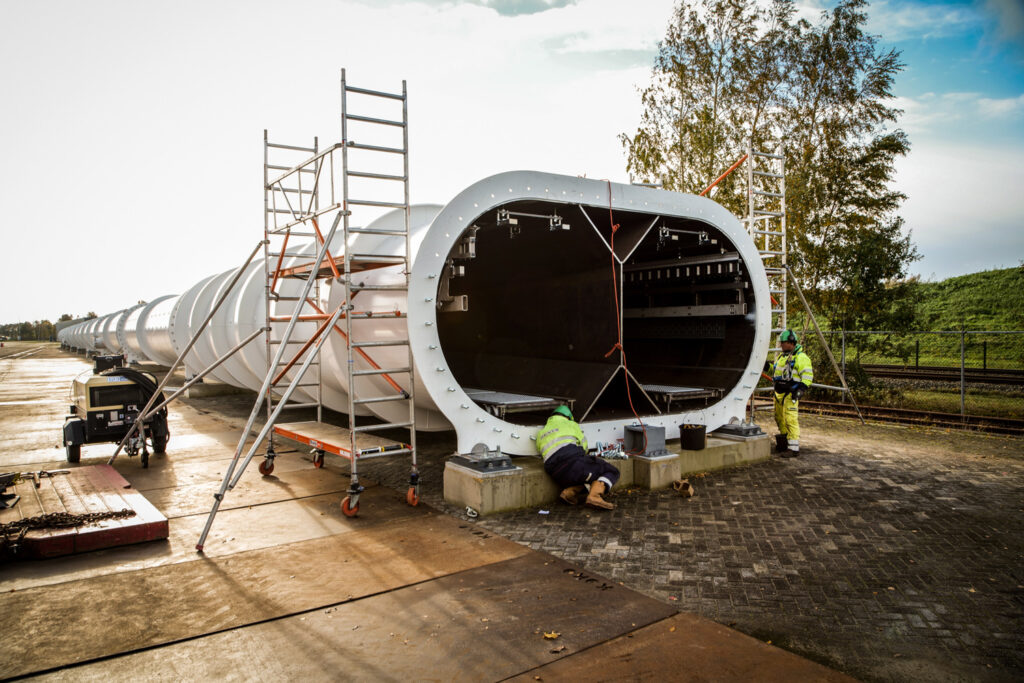Initial tests of Europe’s initial hyperloop pilot route will start in early 2024. The installation of the magnetic system, which will swiftly transport both people and goods in a capsule, was overseen by a Belgian company.
The European Hyperloop Centre (EHC) in the Dutch city of Groningen presently spans 200 metres, but by the end of the year, when the first construction phase of the project is expected to be finalised, it will be around double that length.
"By Christmas, we’ll have 420 metres of tubes and the testing facility will be ready," said Tim Houter, co-founder of Hardt Hyperloop at the Delft University of Technology.
By 2024, the pilot route of the magnetic transportation system, comprising steel tubes, will be connected with testing set to begin in the spring, and results are expected by the third quarter.
"We do not yet know where a fully-functioning model will be placed. This could be anywhere in the world, including locations outside Europe," Houter said. However, according to Hardt Hyperloop engineers, commercial Hyperloop could be operational in Europe by 2030.
Effective reduction of emissions
When fully operational, it should reach speeds of up to 700 kilometres per hour, as fast as the speed of an aeroplane, but during initial tests, the speed will be limited to 100 kilometres per hour.
Popularised 13 years ago by entrepreneur Elon Musk, the hyperloop concept has only recently gained practical traction in Europe. The construction of the pilot route, costing in excess of €10 million, aims to convince governments and investors of the system’s viability.

Credit: Belga/ Robin Vandegehuchte
"One of the most effective ways to reduce emissions for medium-length travel distances is by using electric trains," Houter explained. "Yet, even the fastest trains are considerably slower than aeroplanes. Hyperloop could solve this dilemma."
Theoretically, the hyperloop could enable travel from Brussels to Frankfurt in an hour without any CO2 emissions, while it also uses significantly less energy than an aeroplane. Additionally, engineers estimate that building a hyperloop could be 20% cheaper than constructing a high-speed train, partly due to the use of prefab components.
Belgian assistance in project
The hyperloop utilises magnetic propulsion, controlling balance, levitation, and ‘lane switches’ in the tunnel with this natural force. The Belgium-based construction company Denys was entrusted with the infrastructure responsibility for the pilot route in Groningen two years ago.
Aside from it being a faster and more environmentally-friendly way of travelling, it is also very safe and reliable. "In such a vacuum tube, there is no air resistance. The hyperloop operates in a controlled environment and is thus highly reliable," Maarten Vanneste of Denys said.
The Belgian city of Antwerp and the Flemish Institute for Logistics are also partly involved, alongside many other cities and organisations across Europe that are supportive of the programme. The public-private partnership comprises over 20 private partners and has received financial support from the European Commission and the Dutch government.
The pilot route is anticipated to function as an open testing facility from next year, allowing hyperloop companies from around the world to conduct tests. "This aligns with our ethos of fostering a cooperatively-centred community," Houter concluded.

